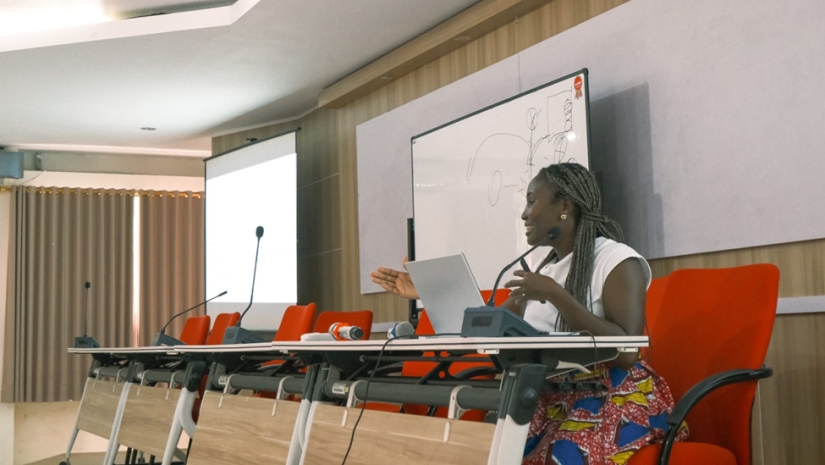
The Department of Anthropology UGM hosted a significant guest lecture by Dr. Edna Agyepong, an academic from the University of Energy and Natural Resource. The guest lecture aimed to explain the complexities of cultural diversity and economic development in Africa, particularly in developing countries.
Dr. Agyepong began her lecture by emphasizing the importance of cultural diversity in shaping land use practices. He argued that understanding local customs and traditions is crucial for effective land management. “Cultural diversity is not just a matter of heritage; it is a vital resource for sustainable development,” he said. This perspective is in line with the UN Sustainable Development Goals (SDGs), particularly Goal 4, which encourages quality education that promotes sustainability.
The lecture also highlighted the role of education for sustainability in empowering communities. Dr. Agyepong pointed out that education initiatives must integrate local knowledge and practices to be effective. “When we educate people about their land and its significance, we empower them to make informed decisions,” he explained. This approach fosters a sense of ownership and responsibility among community members, which is crucial for sustainable economic development.
Dr. Agyepong also discussed the economic development challenges facing many African countries. He noted that while there is potential for growth, external factors such as climate change and global market fluctuations often hinder progress. “Developing countries must navigate these challenges while also preserving their cultural identity,” he said. This balancing act is critical to achieving the SDGs, particularly Goal 8, which focuses on promoting inclusive and sustainable economic growth.
The guest lecture also discussed the importance of civil society partnerships in driving development assistance. Dr. Agyepong emphasized that collaboration between governments, NGOs, and local communities is essential for effective resource management. “Civil society plays a critical role in championing the needs of the people and ensuring that development initiatives are inclusive,” he said. This collaborative approach can lead to more sustainable outcomes and greater community engagement.
As the lecture progressed, Dr. Agyepong shared case studies from various African countries, illustrating successful initiatives that integrate cultural diversity and sustainable practices. These examples served as inspiration to the participants, demonstrating the potential for positive change when local knowledge is valued and integrated into development strategies.
The audience was highly engaged during the Q&A session, where students asked questions about the practical application of Dr. Agyepong’s theories. Many expressed a desire to learn more about how they can contribute to sustainable development efforts in their own communities. Dr. Agyepong encouraged them to seek partnerships and engage with local organizations to make a meaningful impact.
In conclusion, Dr. Agyepong’s lecture provided valuable insights into the complexities of land use and cultural diversity in Africa. The emphasis on education for sustainability and the importance of civil society partnerships resonated strongly with participants, highlighting the need for collaborative efforts in achieving the SDGs. As the event drew to a close, participants left with renewed vigor and commitment to drive sustainable development in their own contexts. Dr. Agyepong’s lecture was a significant step in this direction, inspiring the next generation of leaders to embrace cultural diversity and work towards a sustainable future.
[Public Relations Faculty of Cultural Sciences UGM, Sandya Kirani]

